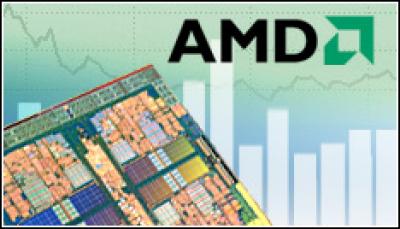Advanced Micro Devices (AMD) will lay off 10 percent of its workforce as part of a larger effort to cut more than $200 million (£125m) in expenses in 2012.
Executives with the world’s second-largest chip maker said that the cost-cutting moves – which include not only the layoffs but also other efforts aimed at streamlining the company’s operations – are meant to better position AMD to pursue initiatives around low-power computing, emerging markets and the cloud, all areas that the company is putting a particular emphasis on going forward.
Pushing up R&D budget
The goal will be to take a large portion of the savings gained through the workforce reduction and streamlining efforts and reinvest in R&D and strategic activities in the three primary focus areas.
 “Reducing our cost structure and focusing our global workforce on key growth opportunities will strengthen AMD’s competitiveness and allow us to aggressively pursue a balanced set of strategic activities designed to accelerate future growth,” AMD president and CEO Rory Read (pictured) said in a statement. “The actions we are taking are designed to improve our ability to consistently address the needs of our global customer base and stake leadership positions in lower power, emerging markets and the cloud.”
“Reducing our cost structure and focusing our global workforce on key growth opportunities will strengthen AMD’s competitiveness and allow us to aggressively pursue a balanced set of strategic activities designed to accelerate future growth,” AMD president and CEO Rory Read (pictured) said in a statement. “The actions we are taking are designed to improve our ability to consistently address the needs of our global customer base and stake leadership positions in lower power, emerging markets and the cloud.”
Company officials said they expect the restructuring effort – which includes not only job cuts but also the cutting of some contracts – will save about $10 million (£6.25m) in the fourth quarter and another $118 million (£74m) in the first quarter of 2012. The layoffs will be completed by the end of the first quarter, and will span all functions and all global regions, according to AMD.
As of July, AMD had about 11,100 employees in 47 locations around the world.
A year of Fusion
This has been something of a roller-coaster year for AMD, which at the 2011 Consumer Electronics Show launched the first of its long-awaited Fusion processors, which offer CPUs and graphics technologies integrated onto the same chip. The Fusion accelerated processing units (APUs) – which AMD calls the chips – was the result of AMD’s $5.4 billion (£3.4bn) acquisition of graphics-chip maker ATI Technologies in 2006.
At the same show, Intel unveiled its own processors with integrated graphics, based on its SandyBridge architecture.
However, soon after the release of the APUs at CES, Dirk Meyer resigned as AMD’s CEO after a falling out with the board of directors over the direction of the company, particularly over the chip maker’s relatively slow response to the booming mobile-device market, particularly smartphones and tablets. That set off an eight-month-long search for a replacement that culminated with the hiring of Read, who had been president of PC-maker Lenovo.
Throughout the search, AMD continued to roll out APUs aimed at everything from low-power PCs to mainstream desktops and notebooks to embedded devices, with executives saying the ramp-ups of some of these products were among the fastest in company history.
However, analysts were critical of AMD’s slowness in finding a CEO, saying not having a someone permanently in the job – it was being held on an interim basis by CFO Thomas Seifert – put AMD at a greater disadvantage in an environment that not only saw traditional rival Intel growing stronger, but also the rise of ARM, whose chip designs dominate the mobile-device space.
Organisational distractions
In July, JMP Securities analyst Alex Gauna in a research note questioned how well the APUs were being received, and added that AMD “is rapidly becoming irrelevant due to the rise in ARM-based alternatives and the rise of tablets … AMD’s problems are compounded by management turbulence, both internally and at its foundry spin-out [Globalfoundries]; as well as by its consumer-centric business model where there has been ample evidence of weakness”.
 Even the third quarter was a mixed bag for AMD. Earlier in the quarter, AMD executives downgraded their financial forecast for the quarter due to manufacturing problems at Globalfoundries. However, in late October, AMD reported a $97 million (£61m) profit for the quarter and a four percent growth in revenue.
Even the third quarter was a mixed bag for AMD. Earlier in the quarter, AMD executives downgraded their financial forecast for the quarter due to manufacturing problems at Globalfoundries. However, in late October, AMD reported a $97 million (£61m) profit for the quarter and a four percent growth in revenue.
During a conference call with analysts and journalists to discuss the financial numbers, Read and Seifert also laid out the company’s focus on low-power computing, emerging markets and the cloud. During the first and second quarter, Seifert also talked about new initiatives designed to streamline business operations and decision-making processes. Those efforts are key parts of AMD’s cost-reduction efforts, with projected operating cost savings of $90 million (£56m).
According to an AMD spokesman, part of the plan is to ensure that the company has the right employees with the skills needed to push its growth efforts. In this “workforce skill set rebalancing” effort, the company will determine what skills they need in what regions and get the right people in place, he said. That means that AMD might rehire for some of the jobs lost based on the necessary skill set.






